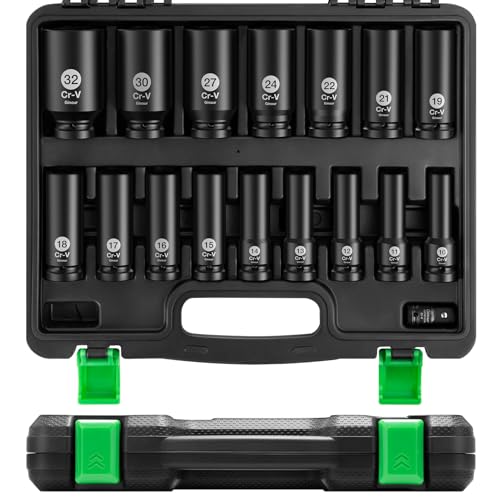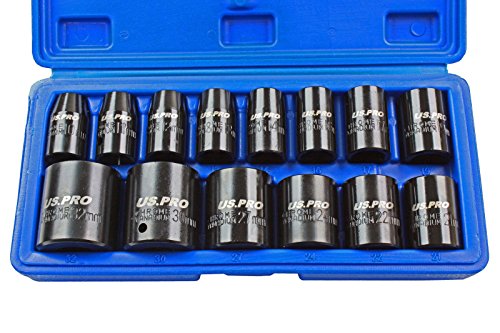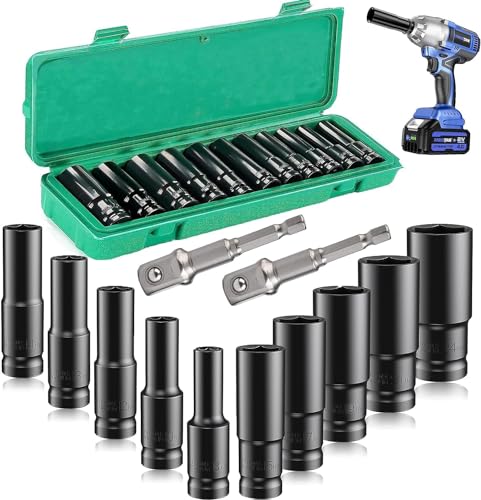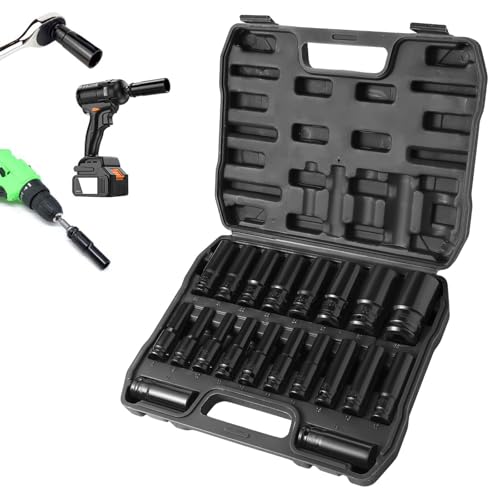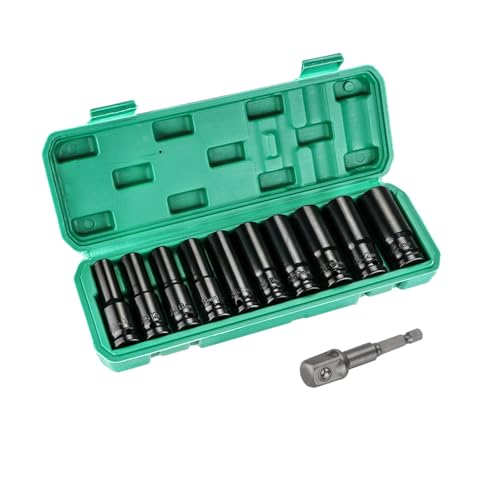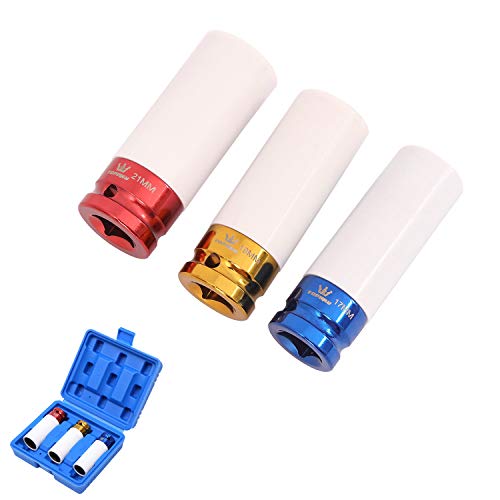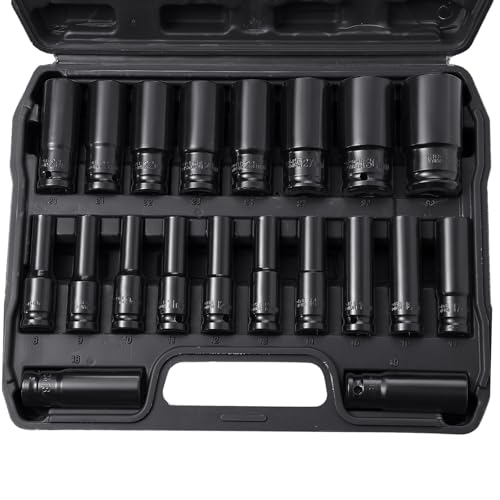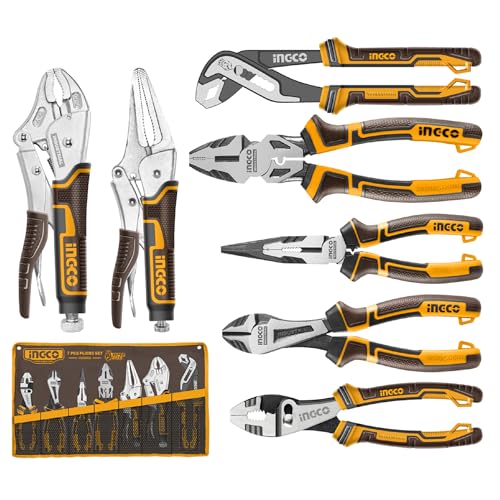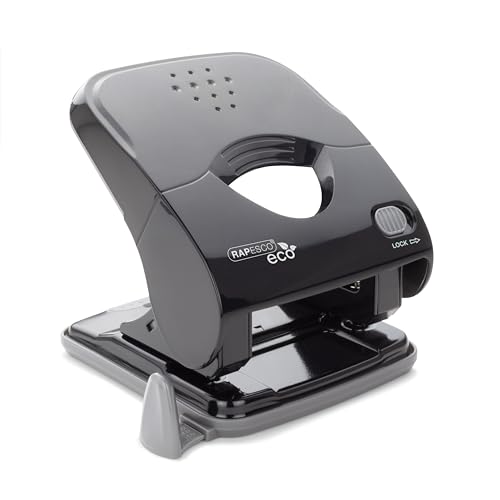Understanding Impact Wrench Sockets: A Complete Overview
What Are Impact Wrench Sockets?
Impact wrench sockets are specialized tools designed to withstand the high torque produced by impact wrenches. Unlike regular sockets, they are built to absorb shocks, providing increased durability and longevity when tackling tough tasks. These sockets have a particular design, which includes a thicker wall and a tougher construction, enabling them to fit securely onto the fasteners without stripping or breaking under pressure.
Why Are They Important?
The right sockets are crucial for effectively using an impact wrench. They ensure that you can fasten or loosen nuts and bolts with ease, making your work more efficient and reducing the risk of damage to both the sockets and the fasteners. When using an impact wrench, having the appropriate socket means you will have a better grip, leading to better performance in your projects.
Choosing the Right Size: Socket Sizes Explained
Understanding Socket Sizes
Socket sizes are measured to fit different types of fasteners. They come in a variety of standard sizes, measured in both metric (millimetres) and imperial (inches) systems. To decide which socket size is right for you, it’s important to assess the dimensions of the nuts and bolts you frequently encounter. Having a comprehensive set that includes both metric and imperial sizes can alleviate the need to make multiple trips to find the exact fit.
How to Easily Determine Socket Size
If you are unsure of the size you need, a simple way to figure this out is to use a caliper to measure the width of the bolt head. Alternatively, you can check the existing sockets you have on hand, as many sets will be labelled for easy reference. Using the correct socket size not only maximizes efficiency but also minimizes wear and potential damage.
Materials Matter: What to Look for in Quality Sockets
Different Materials Explained
Impact wrench sockets are typically made from chromium-molybdenum steel or chromium-vanadium steel. These materials are highly durable, resistant to deformation, and provide excellent performance under stress. Beyond material type, look for sockets with a black oxide finish or a similar coating, as this can prevent corrosion and prolong the life of your socket.
Assessing Thickness and Design
The thickness of a socket directly impacts its sturdiness. A thicker wall is often a sign of a quality socket, capable of withstanding high torque without cracking. When examining design features, ensure that the socket has a six-point or twelve-point configuration. Six-point sockets provide more surface contact, thus reducing the risk of rounding off fasteners, which can save you significant time and frustration during projects.
Accessory Add-ons: Enhancing Your Impact Wrench Experience
Must-Have Accessories
To get the most out of your impact wrench, consider investing in accessories like socket adapters and extensions. Socket adapters allow you to use your impact sockets with different drive sizes, expanding the versatility of your tools. Extensions help you reach tight spaces where a standard socket might not fit, enabling you to tackle a wider range of tasks more easily.
Storage Solutions for Sockets
Proper storage is essential for maintaining the integrity and ensuring the longevity of your sockets. Using a socket organizer or storage case can help keep your tools organized and protected from damage. Opt for a case that allows for easy access, as well as one that offers clear labeling for different sizes to save time when you need to grab the right socket.
Maximising Performance: Tips for Using Impact Wrench Sockets Effectively
Correct Use of Tools
When using your impact wrench, it’s crucial to ensure that the socket is fully engaged with the fastener before applying torque. This prevents damage to both the socket and the fastener, enhancing efficiency. It’s also wise to start your fastening operation at a lower torque setting, gradually increasing it once you confirm a secure fit.
Regular Maintenance for Longevity
Lastly, taking the time for regular maintenance of your sockets will enhance their performance and longevity. After each use, clean them to remove any debris or grease, and inspect for wear or damage. Storing them in a cool, dry place prevents rust and ensures they are always ready when you need them.




